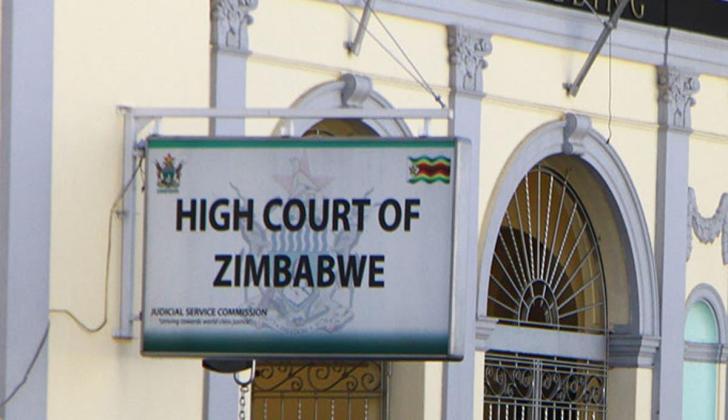News / National
High Court frees police cell arsonist
24 Oct 2024 at 07:01hrs |
2 Views

In a surprising turn of events, Brighton Mashapaidze, a 38-year-old man who faced a seven-month prison term for disorderly conduct and malicious damage to property, has been released by the High Court after judges identified significant procedural errors in his conviction.
Mashapaidze had been incarcerated for two months following an incident at the Mahusekwa Police Station on June 21, where he allegedly hurled insults at police officers, removed clothes from a washing line, and threatened children playing outside. He was subsequently locked in a holding cell, where he ignited blankets using matches, creating chaos and smoke that required intervention from other inmates.
Upon review, High Court Justices Lucy Mungwari and Faith Mushure granted Mashapaidze a warrant of liberation, highlighting errors in the lower court's handling of the case. The judges criticized the trial magistrate for rushing to secure a conviction and for not addressing clear discrepancies in the charges, noting that Mashapaidze had been improperly charged with the same act of destroying a blanket twice.
"This is tantamount to an improper splitting of charges," the judges stated, explaining that the same evidence was applicable to both counts against him. They emphasized the magistrate's responsibility to ensure charges are properly formulated before proceeding with a trial, an obligation that was evidently overlooked in Mashapaidze's case.
The court noted that Mashapaidze had entered a guilty plea without legal representation, which undermined the integrity of the trial. The judges highlighted that he had expressed a defense of intoxication at the time of the incident, a valid argument that was not pursued by the magistrate.
"Denying the accused that opportunity undermines the integrity of the trial through the guilty plea," the judges ruled, insisting that the magistrate should have probed further into Mashapaidze's state of mind during the event.
The High Court ordered Mashapaidze's immediate release, stating that if he were to be retried, the magistrate should take into account the two months already served.
As the legal community reflects on this case, it serves as a reminder of the importance of due process and proper legal representation, especially for individuals navigating the justice system without assistance.
Mashapaidze had been incarcerated for two months following an incident at the Mahusekwa Police Station on June 21, where he allegedly hurled insults at police officers, removed clothes from a washing line, and threatened children playing outside. He was subsequently locked in a holding cell, where he ignited blankets using matches, creating chaos and smoke that required intervention from other inmates.
Upon review, High Court Justices Lucy Mungwari and Faith Mushure granted Mashapaidze a warrant of liberation, highlighting errors in the lower court's handling of the case. The judges criticized the trial magistrate for rushing to secure a conviction and for not addressing clear discrepancies in the charges, noting that Mashapaidze had been improperly charged with the same act of destroying a blanket twice.
"This is tantamount to an improper splitting of charges," the judges stated, explaining that the same evidence was applicable to both counts against him. They emphasized the magistrate's responsibility to ensure charges are properly formulated before proceeding with a trial, an obligation that was evidently overlooked in Mashapaidze's case.
"Denying the accused that opportunity undermines the integrity of the trial through the guilty plea," the judges ruled, insisting that the magistrate should have probed further into Mashapaidze's state of mind during the event.
The High Court ordered Mashapaidze's immediate release, stating that if he were to be retried, the magistrate should take into account the two months already served.
As the legal community reflects on this case, it serves as a reminder of the importance of due process and proper legal representation, especially for individuals navigating the justice system without assistance.
Source - newsday
Join the discussion
Loading comments…



























